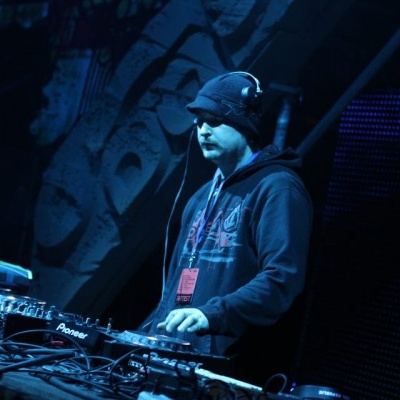
Technical Itch
by Sean Cooper Bristol-based duo Technical Itch make leading-edge progressive drum'n'bass, incorporating the moodier elements of jump-up and techstep with a nod toward drum-twisting junglists such as Dom & Roland and the Penny Black label. Although Technical Itch's Darren Beale and Mark Caro (the latter originally of Birmingham) have deepest roots in the late-'80s hardcore breakbeat scene, their material both apart and together has tended toward the darkside, combining dense, unsetting atmospherics with complex, bruising drum patterns and deep subbass groans. The pair's most-used recording moniker derives (as does their home-run label) from their Bristol-based Tech Itch recording studio, but Caro and Beale have also recorded as Kutta (for Rough Tone), Decoder (for Tech Itch, Back2Basics, and Ruffneck Ting), T.I.C. (for Back2Basics), and Alpha Proxima (for Au Toi). The pair's earliest tracks came toward the peak end of the U.K. hardcore scene; both Beale and Caro were noted DJs, with Beale's recorded work as Orca adding to his notoriety. Introduced by a mutual friend, they released their first record together as Plasmic Life on Bizzy B's Brain Records, and by the early '90s were moving away from the conventions of hardcore, following breakbeat into the less static realms of darkside and hardstep jungle. Still only a part-time collaboration, the pair's partnership deepened after Omni Trio's Rob Haigh heard a Tech Itch track on Kenny Ken's Kiss FM show, leading to their signing with Haigh's home-base Moving Shadow in 1996. The pair produced a number of singles as Technical Itch for the label that same year, with scores of tracks as Decoder and T.I.C. continuing to appear on their own and other labels, marking the pair as one of the more prolific (and increasingly influential) of the new crop. Though a Decoder full-length was first out of the gate in late 1998, Tech Itch's Diagnostics followed in 1999 on Moving Shadow.
